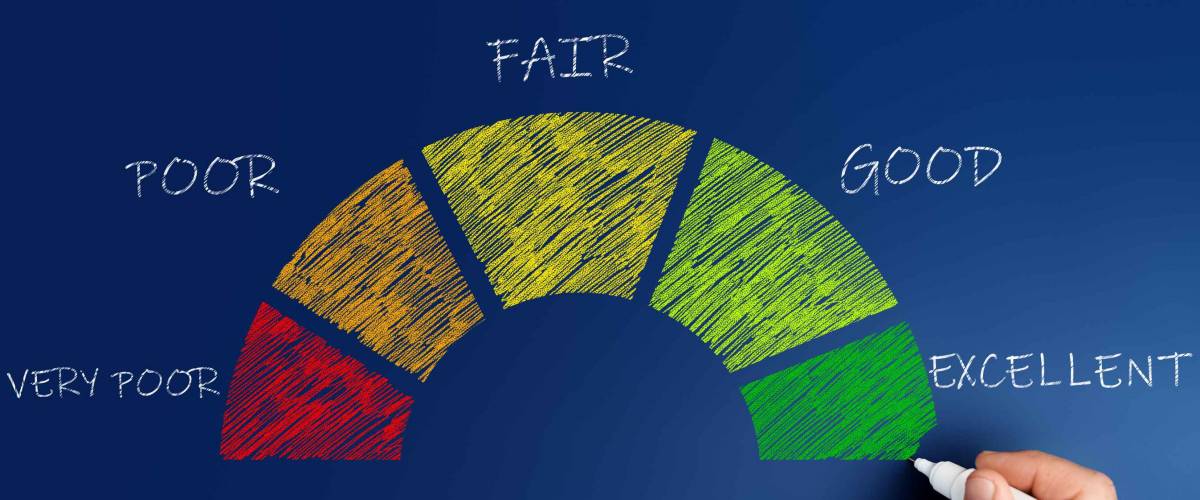The starting point

It’s important to establish your credit as early as possible. Basic things like renting an apartment or even getting utilities can be much harder if you have bad credit or no credit. It might even prevent you from getting a job.
In order to start building up your credit score, you must have an account that reports your payment history and balance to one of Canada’s two major credit bureaus: Equifax and TransUnion.
And while the two use slightly different information and calculations, their focus is on the same factors. Your payment history, for example, makes up 35% of your score.
After about six months of credit use and payments, the bureaus will have enough information to begin putting together your credit score.
Six months is generally the bare minimum that you need in terms of creating a score that lenders will look at. In many cases, lenders consider between two to four years of history a good starting point.
Empower Your Investments with Q Trade
Discover Q Trade's award-winning platform and take control of your financial future. With user-friendly tools, expert insights, and low fees, investing has never been easier.
Start Trading TodayWhat is a good credit score?

According to Equifax, credit scores from 560 to 659 are typically considered fair. A score of 660 to 724 is considered good; 725 to 759 is seen as very good; and 760 and higher is considered excellent. If you’re just starting out building your credit, a score in the high 600s or low 700s is a good target to aim for.
When you begin building credit, however, you don’t start with a 0 or a very low number like 300.
Precisely how credit is scored is the stuff of complicated algorithms and trade secrets, but there are things we know help it go up: pay your bills on time, don’t carry a huge balance and don’t open too many accounts too close together.
With that said, here are some other ways to build your credit score.
Looking to keep building up your credit and get some rewards at the same time? You can get a no-fee, cash-back Visa card to do exactly that.
How time affects your credit score

Having older credit accounts with a good payment history shows lenders that you’re responsible with your financial obligations.
But lenders will also look at other things, like the number of accounts you have and their average age. This can all affect what kind of interest rates they give you when you apply for things like personal loans, credit cards or mortgages.
There are many factors that go into calculating your credit score, but hanging on to an older credit card you still use — and shows a strong payment history — is a good idea.
The other aspect to consider is the average age of your accounts. This is determined by just adding the age of each account and dividing it by the number of accounts.
Let’s say you have four credit cards: one is 12 years old, one is 7 years old, one is 4 years old and the newest is one year old. If you add up those ages (12 + 7 + 4 + 1 = 24) and divide that by the number of cards (four) you get an average account age of six years.
As you can see, every new credit card or account you add will lower the average age. So as tempting as some new card offers may be, the hit to your account age may not be worth it.
Unexpected vet bills don’t have to break the bank
Life with pets is unpredictable, but there are ways to prepare for the unexpected.
Fetch Insurance offers coverage for treatment of accidents, illnesses, prescriptions drugs, emergency care and more.
Plus, their optional wellness plan covers things like routine vet trips, grooming and training costs, if you want to give your pet the all-star treatment while you protect your bank account.
Get A QuoteHelping you build a good score

One of the most important places to start when it comes to building and maintaining good credit is simply knowing what your credit score is. And staying on top of your score isn’t only good for your peace of mind, it can also give you an early warning when it comes to things like fraud or if an account has lost its good standing.
There are sites that offer free credit monitoring, which is a great place to start getting into the habit of keeping an eye on it.
If you’re concerned that your credit score could use a bump in the right direction, there are also services designed to help you monitor and give you tips to raise your credit score.
And if your existing debt has you starting to feel swamped, [you should consider folding all of your debt into a consolidation loan with a lower interest rate.
- Credit building: If you need to build your credit up, there are dedicated credit-building services designed to help you do just that.
- Get a credit card designed to help you build your score: Provided you haven’t just just applied for or got a new credit card, you can sign up for a new card and get a jump on building your credit while enjoying benefits like no fees and cash back.
- Credit repair: Is your credit not where it should be and you need to put in the work to repair it? You can get a credit-repair loan to help get your score back up.
Sponsored
Trade Smarter, Today
With CIBC Investor's Edge, kick-start your portfolio with 100 free trades and up to $4,500 cash back.








